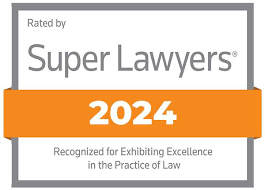Greensboro Appeals and Post-Judgment
Greensboro Appeals and Post-Judgment
Tight deadlines. Clear strategy. Clean records. If a family court order in Guilford County District Court missed the mark, we help you decide between a direct appeal and targeted post-judgment relief, then move fast on filings and transcripts.

Your Appeals & Post-Judgment Attorney
Krispen Culbertson has 20+ years briefing and arguing family law appeals and post-judgment motions for Greensboro families—Notice of Appeal, Rule 59 and Rule 60 relief, stays/supersedeas, record on appeal, and transcript strategy—regularly appearing before the North Carolina Court of Appeals after trial work in Guilford County District Court.
Memberships: North Carolina State Bar; local family law section. Courts: Greensboro & High Point District Court; North Carolina Court of Appeals.
Friendly heads-up: this page is general info for North Carolina family cases. It is not legal advice for your situation.
Fast answers
Notice of Appeal deadline: usually 30 days from entry of judgment or service of the order.
Rule 59 window: often 10 days to request a new hearing or ask the court to amend findings.
Rule 60 relief: clerical fixes anytime; other grounds within a reasonable time, some within 1 year.
Stays: support and custody usually keep running unless the court or an appellate judge grants a stay or supersedeas.
Temporary custody orders: many are not appealable; a modification path can be quicker.
Standards of review: many family rulings are abuse of discretion; pure legal questions are reviewed de novo.
Helpful links: Greensboro Family Lawyer • Greensboro Child Custody Lawyer • Greensboro Child Support Lawyer • Greensboro Alimony Lawyer • Greensboro Property Division Lawyer • Greensboro Modification and Enforcement • Greensboro UIFSA and UCCJEA • Greensboro Divorce Lawyer
What you can appeal from Greensboro family court
You can appeal most final family law orders: custody, child support, equitable distribution, alimony, and attorney’s fees. Civil contempt orders with sanctions can also be appealed. Interlocutory appeals are limited to narrow “substantial right” scenarios. We review the order to confirm whether it is final, truly temporary, or missing the findings needed to support review.
Appeal or post-judgment motion
Sometimes the fastest fix happens in the trial court. Other times, the only path is a direct appeal to the North Carolina Court of Appeals.
- When to appeal: legal error on the face of the order, missing required findings, or an outcome that cannot be squared with the evidence even when the judge had discretion.
- Rule 59 motion: ask the court for a new hearing or to amend findings where the record shows error or key facts were overlooked.
- Rule 60 motion: clerical mistakes under 60(a); excusable neglect, fraud, or newly discovered evidence under 60(b).
- Clock control: some post-judgment motions can affect the appeal deadline. We calendar both the motion and the 30-day window so nothing is missed.
Deadlines and the first 30 days
- Confirm the date of entry and whether the clerk served the order.
- File and serve the Notice of Appeal within the window.
- Designate transcripts and exhibits.
- Line up the record on appeal items early to avoid scramble later.
- Consider a motion for stay or supersedeas if the order would cause immediate harm.
We give you a checklist on day one: who files what, where it goes, and when each step lands on the calendar.
Standards of review that shape your odds
- De novo: pure legal questions, such as jurisdiction or misapplied statutes.
- Abuse of discretion: many custody, support, and equitable distribution issues. The focus is whether the trial judge stayed within a range of reasonable choices.
- Findings of fact: the Court of Appeals looks for competent evidence supporting the findings. Missing or thin findings can lead to reversal or remand.
Knowing the standard tells us whether to target a legal issue, a findings problem, or both.
Building the record the right way
Appeals rise or fall on the record, not on new facts. We:
- Order transcripts and verify audibility for each hearing day.
- Gather exhibits, financial affidavits, guideline worksheets, and calendars that the judge actually saw.
- Fix indexing issues and propose a clean, paginated record on appeal.
- Frame issues on appeal that match preserved objections and the standard of review.
Stays, bonds, and supersedeas
Support and custody typically remain in effect while the appeal is pending. For relief:
- Ask the trial court to stay parts of the order that would cause immediate harm.
- Seek supersedeas in the appellate court when required.
- Use targeted terms for custody exchanges and travel so children keep a steady routine.
Post-judgment tools in the trial court
- Rule 59: new hearing or amended judgment for reasons like errors of law or newly considered evidence that was presented but not addressed.
- Rule 60: clerical fixes, excusable neglect, fraud, or new evidence that could not have been found with reasonable effort.
- Clerical corrections: tighten property descriptions, QDRO references, dates, and dollar figures so employers, schools, and agencies can follow the order.
Issue-specific notes for family appeals
Custody
Permanent versus temporary orders, best-interest findings, relocation terms, and whether the court addressed safety concerns and each parent’s role.
Child support
Worksheet choice (A, B, or C), income findings, credits for health insurance and childcare, and whether the order explains deviations.
Alimony
Findings on need and ability to pay, factor analysis, and any cohabitation or remarriage language that affects duration.
Equitable distribution
Classification of assets and debts, valuation dates, distributional factors, and whether the order supports any distributive award or QDRO language.
Attorney’s fees
Eligibility under the statute and the findings the court must make to support a fee award.
Enforcement while the appeal is pending
- Use wage withholding, arrears audits, and clear crediting rules for support.
- Seek show cause for willful violations with purge terms that fix the problem.
- Narrow relief requests to prevent irreparable harm without grinding everything to a halt.
See also: Greensboro Modification and Enforcement
Interstate and military points
Appeals that involve UIFSA or UCCJEA bring extra layers: out-of-state records, home-state checks, and continuing exclusive jurisdiction for support. Service members may seek timing relief under SCRA, and some hearings allow remote participation. For more on jurisdiction and registration, visit Greensboro UIFSA and UCCJEA and Greensboro Military Divorce.
Evidence checklist and consult prep
Bring these to your consult or upload them securely:
- The signed order plus any prior temporary orders
- All exhibits used at the hearing
- Financial affidavits and child support worksheets
- Parenting time calendars, messages about exchanges, travel logs
- Pay records, tax returns, and medical or school records referenced by the court
- A short timeline showing what happened before and after the order
We turn this into a strategy memo with the best path: direct appeal, Rule 59 or 60 motion, or a targeted modification.
Visit or contact Culbertson & Associates
Culbertson & Associates — Greensboro Appeals & Post-Judgment Lawyer
315 Spring Garden St, Ste #300
Greensboro, NC 27401
(336) 272-4299 • culbertsonatlaw.com
Office hours: Mon–Fri 8:30 AM–5 PM • Area served: Greensboro, High Point, Winston-Salem, Burlington, Asheboro, Guilford County
FAQs
Do I have 30 days to appeal a family court order in North Carolina?
Should I file a Rule 59 motion or go straight to appeal?
Can I appeal a temporary custody order?
Will child support stop while I appeal?
What is a supersedeas bond?
Can I correct clerical mistakes without a full appeal?
What if the judge did not make enough findings to support the order?
How do I get the transcript for my appeal?
Can Greensboro modify the order while the appeal is pending?
How long do appeals usually take?
Why Greensboro families choose Culbertson & Associates
- 20+ years handling family law appeals and post-judgment work
- Weekly practice in Guilford County District Court with regular filings to the Court of Appeals
- Strategy memos that match deadlines, standards of review, and your goals
- Plain-English updates, tight records, and realistic timelines


Contact us now
book consultation







No Comments
Sorry, the comment form is closed at this time.